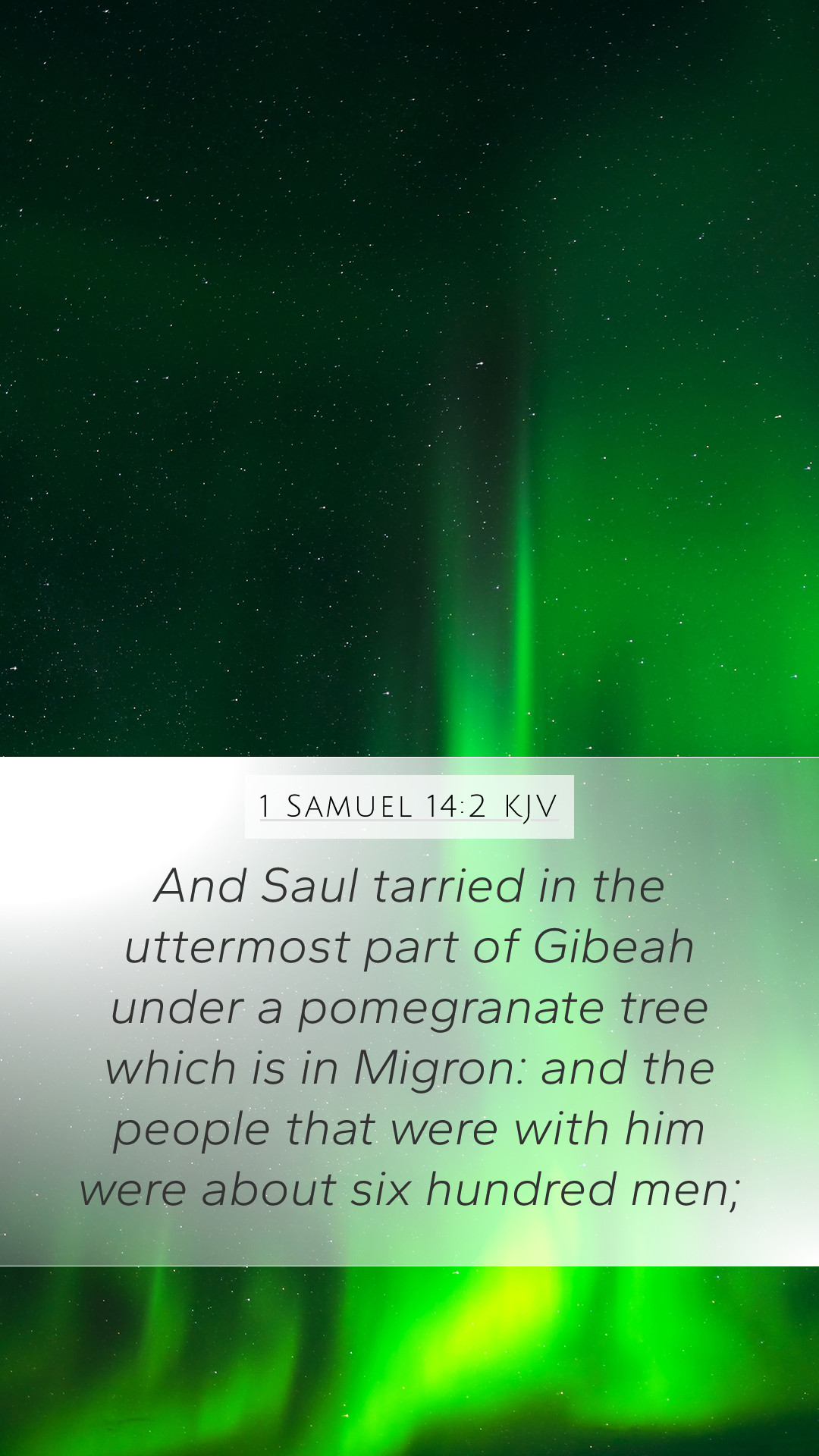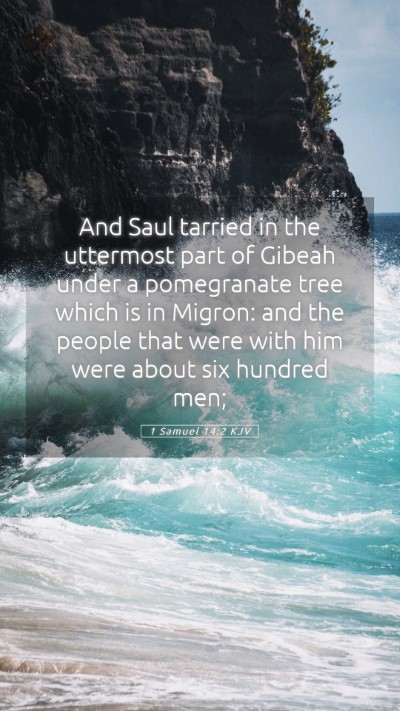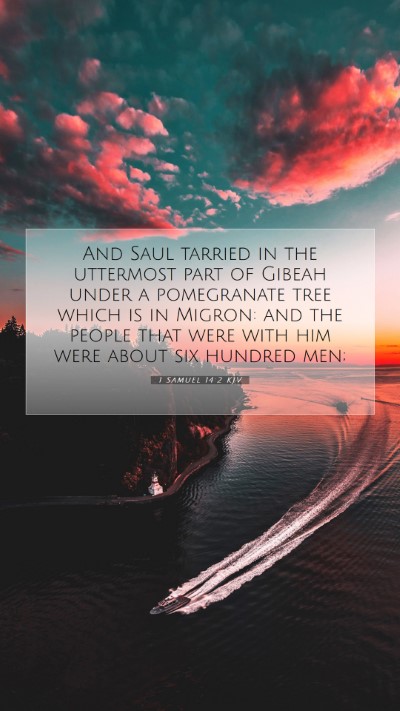Bible Verse Meaning of 1 Samuel 14:2
Verse Reference: 1 Samuel 14:2 - "And Saul tarried in the uttermost part of Gibeah under a pomegranate tree which is in Migron: and the people that were with him were about six hundred men."
Contextual Overview
This verse occurs during a period of turmoil for Israel, as they face threats from the Philistines. Saul, the King of Israel, is positioned with his remaining troops, indicating a moment of uncertainty and contemplation.
Verse Explanation
Saul's Location: Saul's choice to wait under a pomegranate tree represents a moment of pause—a time for prayer, strategy, or perhaps indecision. Commentators suggest that this choice of location may symbolize a lack of initiative on Saul's part, contrasting sharply with the bold actions of his son, Jonathan, later in the same chapter.
Number of Men: The mention of "about six hundred men" highlights the dwindling strength of Saul's forces, emphasizing the desperate condition of Israel at this time. This small number of troops juxtaposes the might of the Philistine army and highlights the precarious situation Saul finds himself in.
Combined Insights from Commentaries
-
Matthew Henry: Henry views Saul's waiting under the pomegranate as indicative of his character—symbolizing his hesitance and lack of decisive leadership. This delay can be seen as an ineffective moment when action is desperately needed.
-
Albert Barnes: Barnes emphasizes the geographical mention of Gibeah as a strategic location, but also contrasts it with the impending threat from the Philistines, which provides a stark backdrop for the verse's setting. Saul’s indecisiveness is highlighted, suggesting he was not fully engaging with the conflict at hand.
-
Adam Clarke: Clarke adds that the specific tree mentioned may have held cultural significance, providing a place of rest but also highlighting Saul's inability to lead his people into battle effectively. Clarke discusses how such pauses can reflect a leader's struggle in faith and resolve.
Spiritual and Practical Applications
For contemporary readers, this verse serves as a reminder about the importance of decisive action in leadership. Saul's hesitation can inspire questions about personal faith and leadership in our own lives, both in spiritual communities and in personal relationships.
Related Bible Cross References
- 1 Samuel 13:7-14 - Discusses Saul's previous failings and God's rejection of him.
- 1 Samuel 14:1 - Jonathan's courageous decision contrasts with Saul's hesitation.
- 1 Samuel 15:10-23 - Further illustrates the consequences of Saul's disobedience and hesitance.
Conclusion
In essence, 1 Samuel 14:2 encapsulates a moment of significant tension within Israel's history—showing the struggles of leadership, the importance of faith in action, and the necessity of decisive steps during crises. This verse can be a catalyst for deeper Bible verse meanings and Bible verse interpretations, enhancing our Bible study insights and leading to a richer understanding of Scripture.


